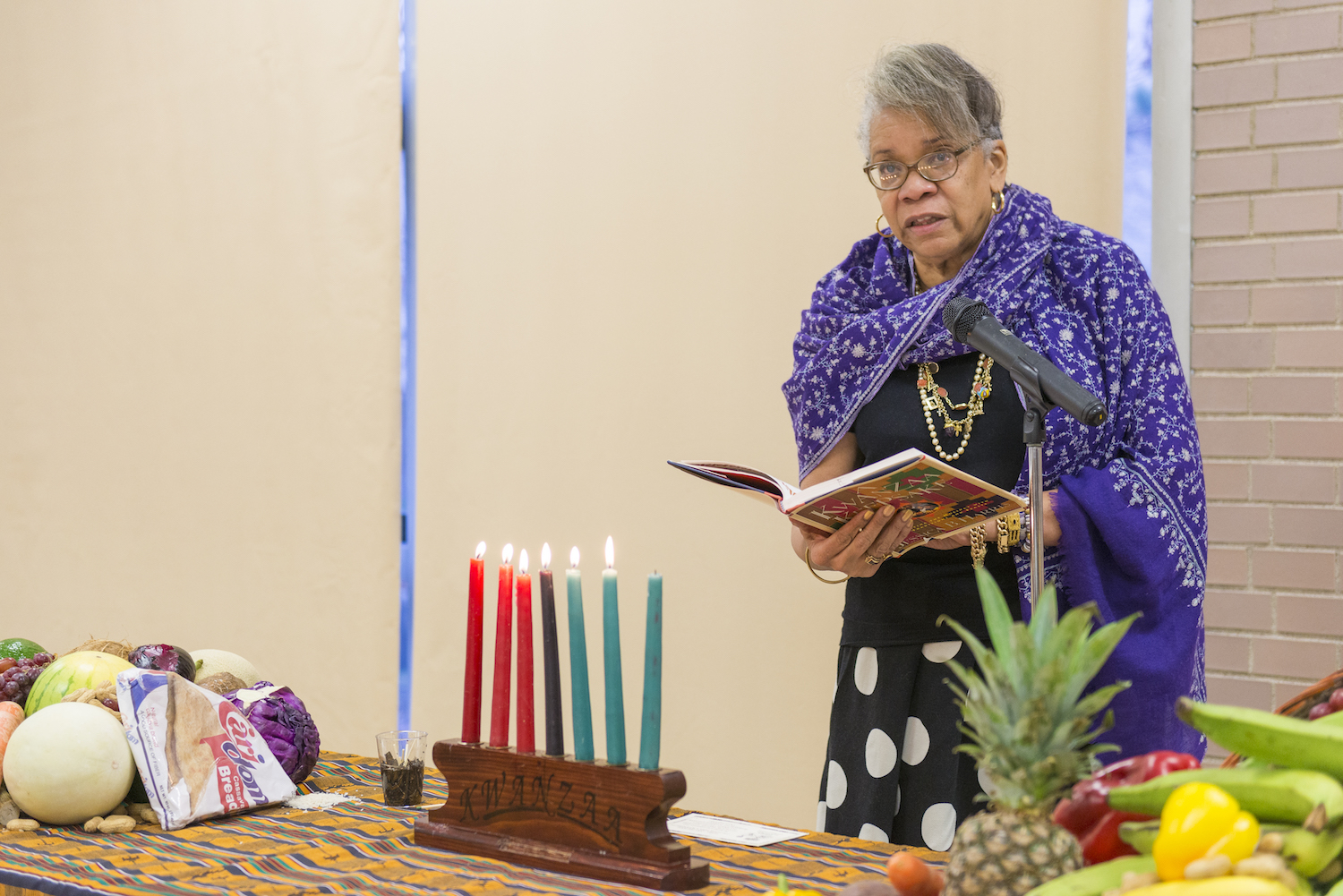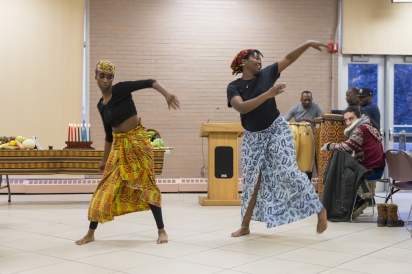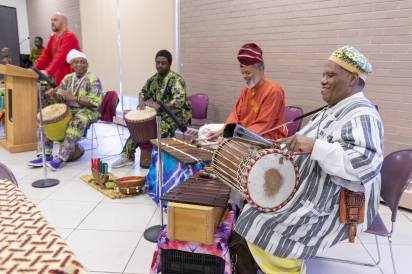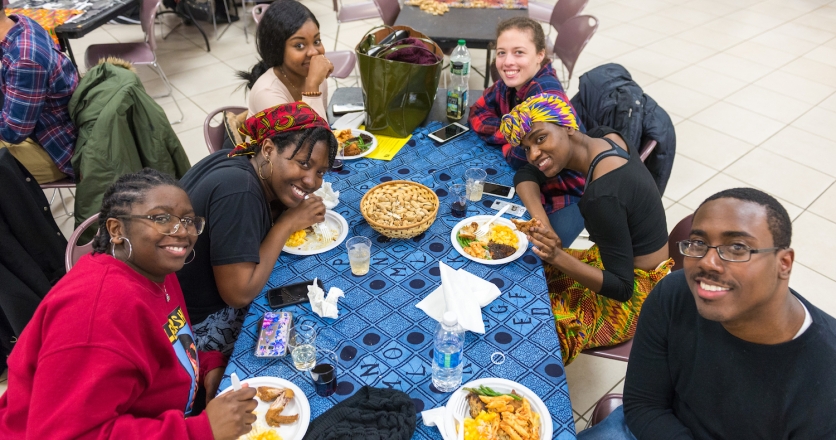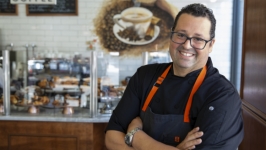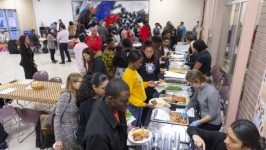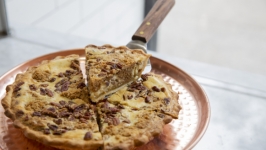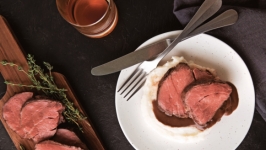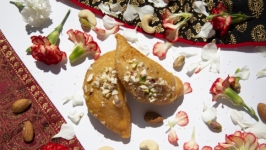Recollecting the African Diaspora
The holidays usually conjure images of home and family, so an office or a school gathering are not typically the first celebrations that come to mind. But the unique blend of cultures, traditions and customs that comprise Queens are often best represented in the workplace. The holiday season offers a special opportunity to foster community and strengthen bonds at the office. Dr. Jessica B. Harris, a recently retired Queens College English professor and the James Beard Award–winning historian and author of 1994’s A Kwanzaa Keepsake, found this to be true when she began annually celebrating Kwanzaa with her colleagues in the 1990s.
“The faculty and staff of the Africana studies department had already been celebrating faculty Kwanzaa when I was asked to participate. It was originally somewhat small. People would come by, have a little bit of food, light a candle and move on. Over the years we went on to build it into something that became quite the annual event. At some point there were drummers and dancers. It became a rather grand thing,” she explains.
Established in 1966 by Maulana Karenga, Kwanzaa is an African-American and pan-African holiday that takes place over seven days each year between December 26 and January 1. Each night is dedicated to one of seven core principles: Umoja (unity), Kujichagulia (self-determination), Ujima (collective work and responsibility), Ujamaa (cooperative economics), Nia (purpose), Kuumba (creativity) and Imani (faith).
In her book, Harris describes the meanings behind each of these principles and offers suggestions on how to observe each night, including recipes and activities. The observations on the sixth night (Kuumba) include what she calls the healing supper: a “communal meal that opens the gates of remembrance through food and speaks of our history, our past and our hopes for the future.”
During the celebrations with her fellow faculty and staff, the healing supper—along with observances of the other principles—would be condensed into one evening. “We lit all of the candles and talked about each day during the ceremony. I sort of evolved the healing supper into a kind of monologue, prayer and meditation on Kwanzaa, and would do that as kind of an invocation. I would pour libations to ancestors and ask people who they had lost and celebrate colleagues and family members who had become ancestors that year. In the monologue I would talk about what the importance of the holiday was, what the symbols were. It was a celebration of Kwanzaa and an introduction to Kwanzaa for people who might not have known.”
Of course, no holiday celebration would be complete without food, and because Kwanzaa celebrates the traditions and culture of Africa and the African diaspora, the meals shared during this holiday are varied and generally represent very different parts of the world. For example, A Kwanzaa Keepsake contains dozens of recipes from Morocco, South Africa and Brazil, among many others
The food Harris shared with her colleagues was often a mixture of Caribbean, Jamaican and American. “It tended to have dishes like jerk chicken, stewed chicken and fried plantains. It was delicious!” Various fruits and vegetables representing parts of the African diaspora were presented on the communal table, which was decorated with a traditional kente cloth provided by Harris. The faculty and staff celebration at Queens College eventually included students as well, growing the community.
Harris’s personal Kwanzaa celebrations often center around the traditional African-American New Year’s meal including collard greens, roast pork with crackling, black-eyed peas and rice. Though she now spends most of her holiday season at her home in New Orleans, and the celebrations among her coworkers were slightly different affairs, they were by no means less flavorful.
“There are as many different types of Kwanzaa as there are types of families in the African-American community,” she wrote in her book. Honoring the holiday at Queens College illustrated that family can be found outside the home, and Harris’s celebration became a highlight of the holiday season for many members of the staff. “With the help of colleagues, friends and Africana studies students it became something people looked forward to every year and I’m deeply pleased about that.”
Dr. Jessica B. Harris | @drjessicabharris
Queens College | @queenscollegeofficial
A Kwanzaa Keepsake


